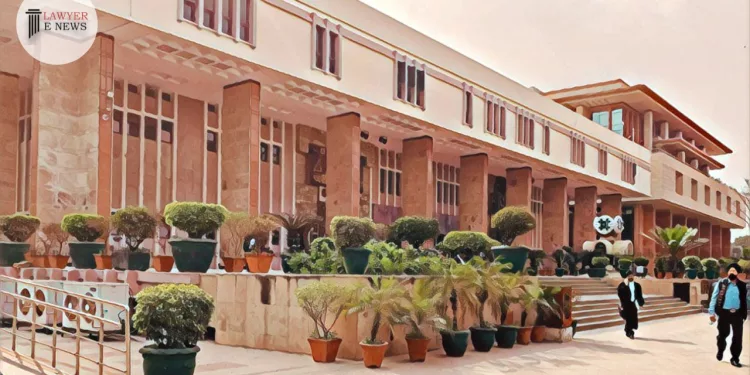Delhi High Court Mandates Local Complaints Committee To Investigate Allegations Even After The Respondent Company Ceased Operations

Delhi High Court, presided over by Justice Subramonium Prasad, issued a significant ruling in a case involving allegations of sexual harassment under the Sexual Harassment at Workplace (Prevention, Prohibition and Redressal) Act, 2013 (POSH Act). The court directed the Local Complaints Committee (LCC) to proceed with the investigation despite the respondent company, Enlive Solutions India Private Limited, no longer operating. The court emphasized the importance of protecting the rights of complainants and ensuring accountability, regardless of the company’s operational status.
The petitioner, represented by Mr. Amit Sharma, Ms. Pallavi Barva, and Ms. Aparna Singh, initially filed a writ petition seeking the formation of an Internal Complaints Committee (ICC) at her workplace, Enlive Solutions India Private Limited, after her complaints of sexual harassment were ignored. Despite repeated attempts to seek redress through various authorities, including the Police Commissioner of Noida and the District Magistrate of IP Extension, Delhi, no significant action was taken.
The court underscored the fundamental objective of the POSH Act, which is to ensure a safe and dignified work environment for women. Justice Subramonium Prasad highlighted that the closure of the company does not absolve it from its obligations under the Act. The court stated, “The fact that Respondent No.2 has wound up does not mean that the complainants would be left remediless.”
Addressing the role of Rajat Bansal, the Chief Financial Officer (CFO) and one of the accused, the court directed his inclusion in the proceedings before the LCC. Despite Bansal’s objections regarding his non-employment status and the maintainability of the application, the court ruled that the investigation should proceed to ensure compliance with the POSH Act. Justice Prasad noted, “The purpose of the POSH Act is that no lady is harassed at workplace. It was the duty of the Respondents No.2 & 3 to ensure that there is a proper ICC in Respondent No.2 Company.”
The court referred to the landmark judgment in Vishaka v. State of Rajasthan (1997) which laid the foundation for the POSH Act, emphasizing the enforcement of gender equality and protection against sexual harassment. The court reiterated, “This is done in exercise of the power available under Article 32 of the Constitution for enforcement of the fundamental rights and it is further emphasised that this would be treated as the law declared by this Court under Article 141 of the Constitution.”
Justice Subramonium Prasad remarked, “The object of the POSH Act is to provide protection against sexual harassment of women at workplace as well as for prevention and redressal of complaints of sexual harassment.” He further asserted, “The newly constituted LCC will look into the complaint of the Petitioner to give a meaningful implementation to the Orders passed by the Apex Court in Vishaka, the POSH Act and the Order passed by this Court on 29.03.2023.”
The Delhi High Court’s decision highlights the judiciary’s commitment to upholding the rights of women in the workplace and ensuring that mechanisms for redressal are robust and effective, even in challenging circumstances such as company closures. By mandating the LCC to proceed with the investigation, the court has reinforced the legal framework for addressing sexual harassment complaints, thereby setting a precedent for future cases.
Date of Decision: May 24, 2024
PETITIONER/AGGRIEVED WOMAN VS STATE OF DELHI & ANR.






